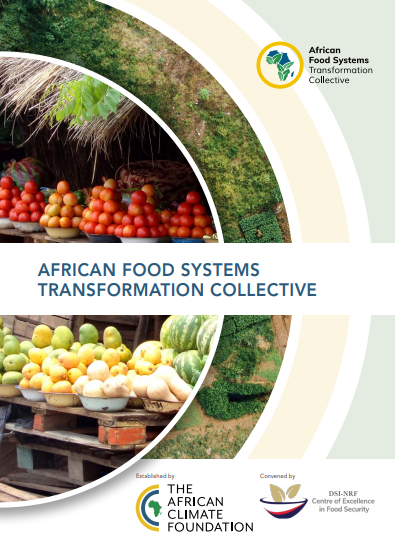
A Call to Rethink Agri-Food Systems in the Face of Global Challenges
As global leaders gather for the UN Food Systems Summit in Addis Ababa, the moment calls for a deep reflection on the progress made over the past four years and a reevaluation of how we finance, produce, and govern our agri-food systems. The urgency is clear: the time for change is now.
Recent events have reinforced this message. From the discussions on nutrition at the Nutrition for Growth Summit in Paris to the International Conference on Financing for Development (FfD4) in Seville, and the latest findings from the 2025 State of Food Security and Nutrition in the World (SOFI) report, the data is unambiguous. While some regions have seen improvements in hunger reduction, others face worsening food insecurity. This mixed picture highlights the need for a more holistic and urgent approach.
The SOFI 2025 report reveals both warning signs and nuanced insights. Although hunger has decreased in Southern Asia and Latin America, food insecurity has increased in rural and urban areas across Africa between 2022 and 2024. Additionally, the gender gap in food insecurity, which had narrowed between 2021 and 2023, widened again in 2024, leaving women disproportionately affected by malnutrition.
These challenges are compounded by factors such as conflict, climate volatility, and post-pandemic inflation, which have eroded previous gains. This situation casts a long shadow over the achievement of SDG 2 – ending hunger. Without decisive action, vulnerability will continue to grow, particularly in Africa.
To address these issues, it is essential to rethink how we support agri-food systems. This involves calling for courage from donors, multilateral lenders, and investors to shift away from short-term projects and towards long-term, systemic financing. It also means embracing innovative tools like concessional finance, blended models, pay-for-results frameworks, and payments for ecosystem services.
Furthermore, financing should be integrated across sectors, including health, climate, and social protection. Food systems are not isolated; they form the backbone of resilience. Most importantly, farmers and food producers, especially young people, must be placed at the center of these conversations.
Agri-food systems can become active drivers of food security and nutrition transformation, rather than passive recipients of aid. When centered in policy and adequately resourced, they can catalyze economic growth, improve livelihoods, and simultaneously meet climate and nutrition goals. This synergy is where climate action meets healthy diets, where dignified employment meets rural renewal, and where innovation meets inclusion for women and youth.
In Africa, this vision is not just an aspiration but a necessity for survival and prosperity. Organizations like AGRA, with two decades of experience in co-designing African solutions, have been instrumental in raising farmers' productivity and connecting them to growing markets. Their work with researchers, donors, governments, private sector, and civil society has led to thriving SMEs, scaled digital and nature-based solutions, and tangible results through increased smallholder productivity and new market opportunities.
AGRA's efforts include facilitating 42 policy reforms across 11 countries, significantly reducing approval times. In Tanzania, centralizing fertiliser oversight led to a 47% increase in trade and price reductions of up to 40%. In Kenya, the 2019 Seed Act expanded access to certified seeds for 2.5 million farmers. Ethiopia’s extension system trained 70,000 agents serving 15 million farmers, while Nigeria’s revived state councils secured $5 million in investments.
However, despite these successes, scaling and sustaining them remains a challenge due to inadequate financing. Official development assistance from G7 donors has declined by nearly 28% since 2021, and debt burdens in low- and middle-income countries have surged, limiting fiscal space for critical investments.
Globally, transforming agri-food systems requires $1.2 trillion to $1.4 trillion annually, a fraction of the $12 trillion lost each year to poor health, environmental degradation, and inequality. Responsible investment could unlock $4.5 trillion in new business opportunities each year.
The case for action is clear: the issue is not a lack of capital but the choice of where to deploy it. If stakeholders are serious about transforming Africa’s agri-food systems, they must also commit to financing her people and harnessing their creativity.
The question before us in Addis Ababa is clear: will we seize this moment to mobilize the capital, creativity, and courage required to build the food systems that Africa and the world urgently needs?


Posting Komentar